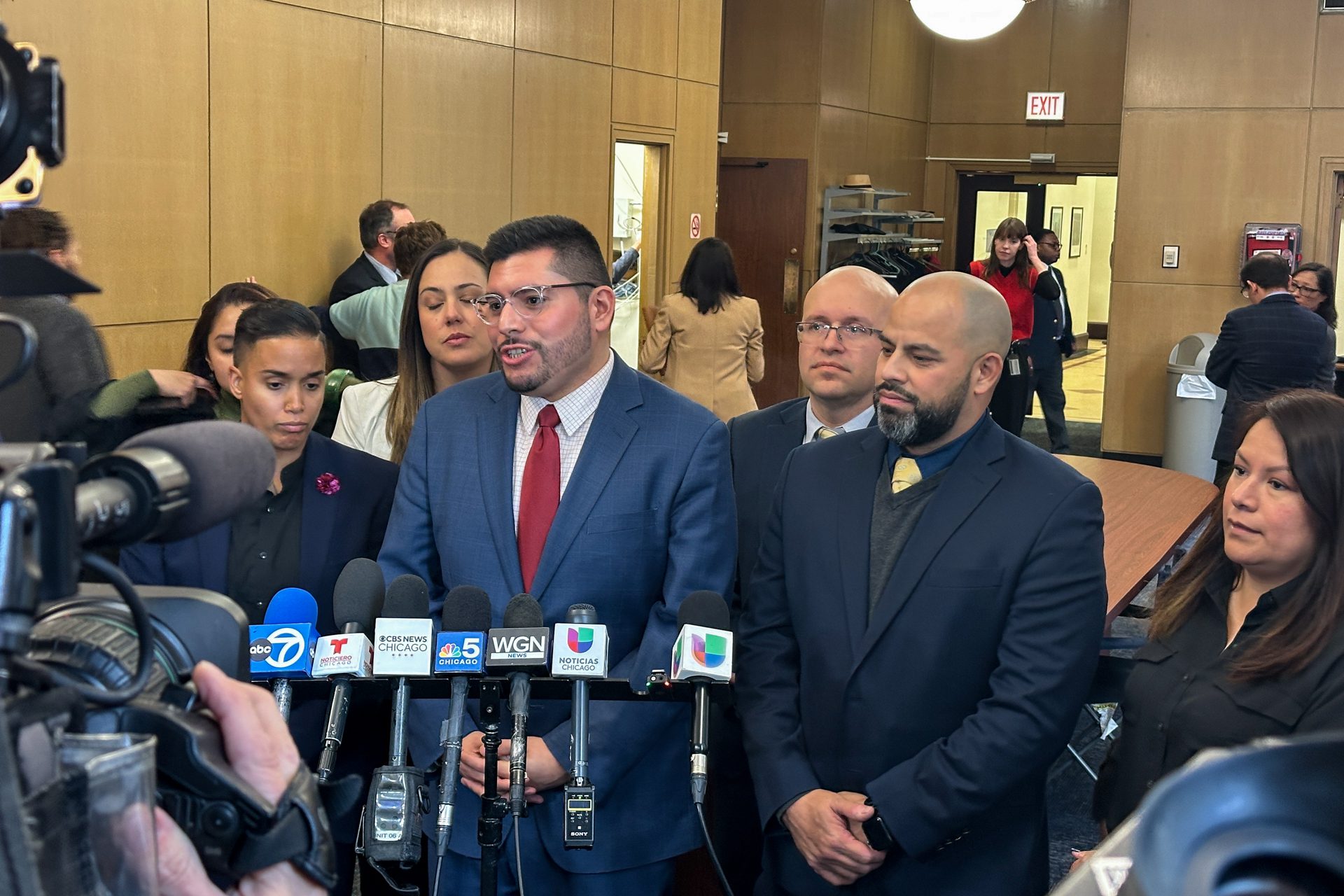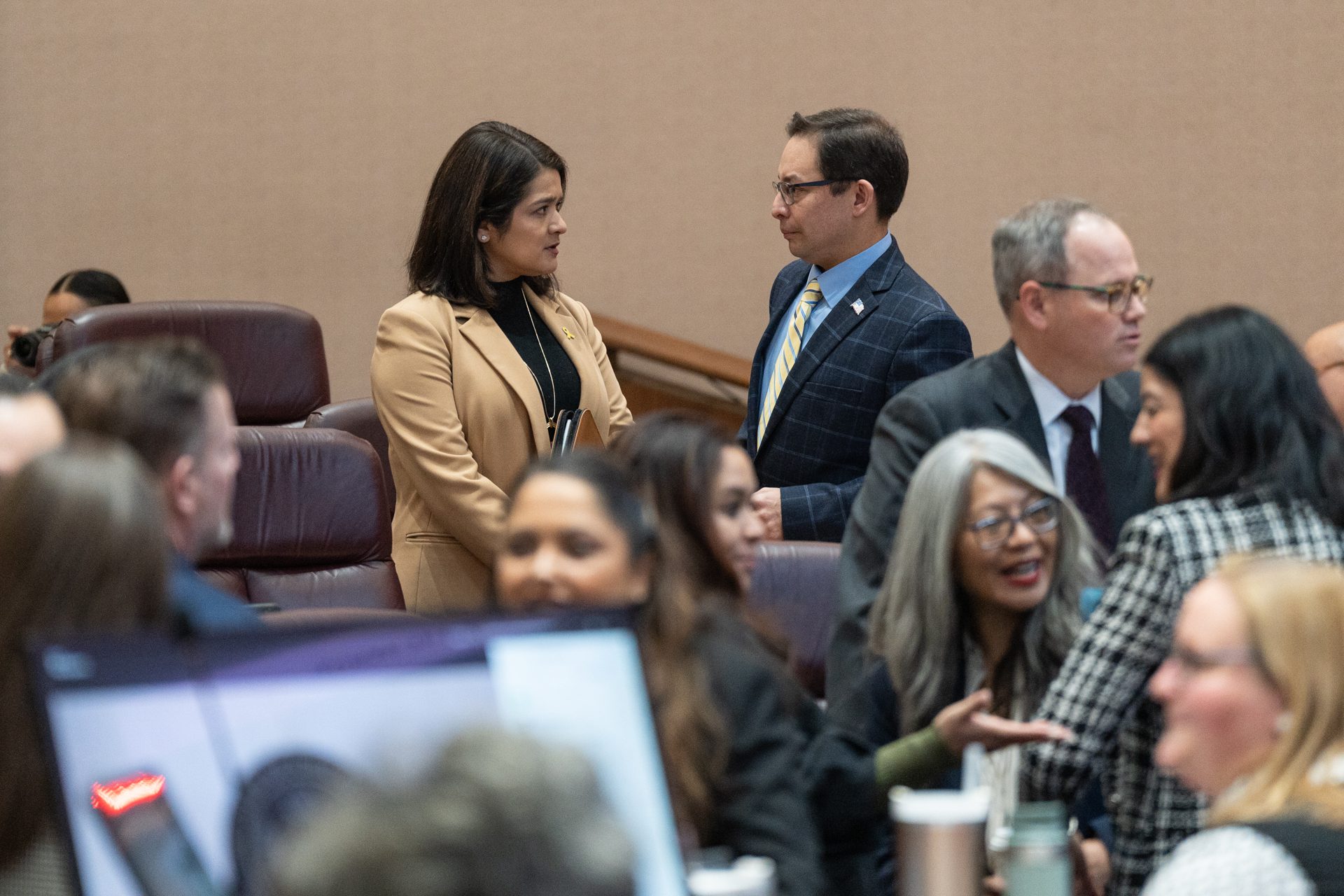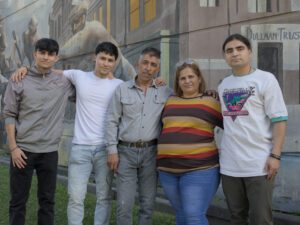 Fatema Hosseini/Borderless Magazine
Fatema Hosseini/Borderless MagazineAld. Raymond Lopez and Silvana Tabares’ proposal would have reinstated a controversial practice of allowing police to cooperate with federal immigration agents.
Chicago aldermen blocked a proposal that would have weakened the city’s sanctuary ordinance ahead of Donald Trump’s inauguration.
On Wednesday, the City Council voted 39 to 11 to table an amendment to the city’s “Welcoming City” ordinance that would have allowed Chicago police to coordinate with federal immigration officials. Trump, who will be sworn in on Monday, has vowed to carry out mass deportations and withhold federal funds from sanctuary cities and states that fail to comply.
Ald. Raymond Lopez (15th) and Alderman Silvana Tabares (23rd) proposed the amendment in 2023, which sought to reinstate a controversial carve-out that would allow local law enforcement to collaborate with federal agents on cases where individuals are arrested for drug and gang-related activities.
News that puts power under the spotlight and communities at the center.
Sign up for our free newsletter and get updates twice a week.
Ald. Lopez expressed disappointment at the outcome, saying, “What worried my colleague and I the most is the fact that we know that the federal government will continue to come into our communities looking for high-priority targets, and there will be collateral captures taken by ICE because we are basically saying, ‘Go find them yourself.’”
In 2019, Ald. Lopez previously criticized federal agents for “manipulating” and attempting to drag police officers into deportation operations, according to a Block Club and the Daily Line report.
“We want to make sure this is not part of a larger pattern to forcibly bring CPD, even though we will not actively engage in ICE deportation,” he told Block Club and the Daily Line at the time.

Chicago’s roots as a sanctuary city began as an executive order before becoming law in 2006. At the time, the Welcoming City ordinance allowed Chicago police to communicate with federal agents about undocumented immigrants with an outstanding criminal warrant, a pending felony prosecution, or those in the city’s gang database.
A 2019 study from the University of Illinois Chicago School of Law emphasized that eliminating carve-outs improves community trust and reduces the likelihood of racial profiling. Advocates have pointed to this research as evidence of maintaining the ordinance’s current protections.
In 2021, then-Mayor Lori Lightfoot and the city council expanded the ordinance and eliminated carve-outs for such cooperations.
Lopez and Tabares’ proposal sparked a fierce backlash from immigrant rights groups across Chicago, who argued the rollback would have a “devastating impact” on communities. Opponents noted that the proposed carve-out would violate due process and Fourth Amendment rights and be in conflict with the state’s Trust Act and Illinois Way Forward Act, which explicitly prohibit local law enforcement from assisting in federal immigration enforcement unless with a federal criminal warrant. Violations could expose the city to lawsuits and legal challenges.
Read More of Our Coverage
Chicago Police Department Superintendent Larry Snelling opposed the proposed amendment, citing concerns over compliance with state laws and its lack of clarity in its language. Under the current “Welcoming Ordinance,” the CPD’s current policies prohibit officers from participating in civil immigration enforcement activities.
Following Wednesday’s vote, Ald. Carlos Ramirez-Rosa (35th) highlighted the ordinance’s importance to Chicago’s immigrant communities. “Our city’s Welcoming City ordinance ensures that no one is afraid to call 911,” Ramirez-Rosa said.
He noted decades of research show that sanctuary cities are safer because people trust local law enforcement.
“Immigrants… come to this country to work hard, to build a better life for themselves and their families. All of the research shows that immigrants commit crimes less than US citizens.”
Fred Tsao, senior policy counsel at the Illinois Coalition for Immigrant and Refugee Rights (ICIRR), celebrated that the ordinance remains intact “without the harmful rollbacks” proposed by Lopez and Tabares.
“By preserving the Ordinance as-is, Chicago is standing up for the constitutional rights of all residents and maintaining the policies that reflect our welcoming values,” Tsao said.
“We urge Council members to work with ICIRR and Chicago communities to uphold and defend the Ordinance rather than roll it back,” Tsao said. “We reject these divisive tactics, and we ask the City Council to work to pass policies that build up all of our communities and treat all of our residents with dignity and respect.”
Correction: A previous version of story incorrectly stated the amendment was proposed last week. The amendment was introduced in Sept. 2023. Borderless has also updated the criminal activity specified in the amendment.
Fatema Hosseini is a Roy W. Howard Investigative Reporting fellow covering immigrant communities for Borderless Magazine. Send her an email at [email protected].


